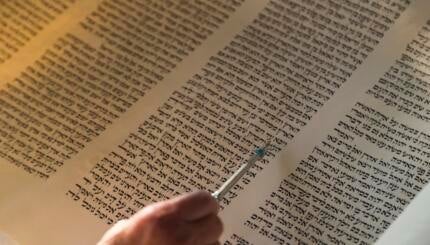A couple of months ago I had the pleasure of reading a very touching piece by Dr. Oliver Sacks z”l in the New York Times. In the piece, the world-renowned neurologist reflects on his youth growing up in a traditional Jewish home and having Shabbat with his family. He shares the heart-wrenching story of his leaving that world. Through a turn of events before the end of his life, he revisits Shabbat with family. About this rediscovery he writes:
The peace of the Sabbath, of a stopped world, a time outside time, was palpable, infused everything, and I found myself drenched with a wistfulness, something akin to nostalgia, wondering what if: What if A and B and C had been different? What sort of person might I have been? What sort of a life might I have lived? (Sabbath- NYT August 14, 2015)
This depiction of the Sabbath brought me back to camp. Camp was really the first place that I truly connected to “a stopped world”.
Is there anything better then Shabbat at camp? What is there not to love? It is amazing, you get all cleaned up, get on your nicest clothes, partake in better food, have some less structured time with people you love in a place filled with beauty and memories. It is the gold standard of food, folks, and fun. I often hear from people, “I do not keep Shabbat at home, but for me camp is the Shabbat of my year.” On one level, this is so beautiful. This sentiment expresses their love of camp and Shabbat. They have found holiness in their lives in these amazing immersive experiences. On another level, it makes me sad. Do Shabbat and camp need to be all or nothing? These peak experiences at camp two months a year might preempt other amazing experiences 10 months a year, or worse for years in their lives when they can no longer come to camp.
I pause to reflect on Shabbat in preparation for Yom Kippur a day described as “Shabbat Shabbaton” (Leviticus 16:31, 23:32). On a simple level, it means a day of complete cessation of work, but on a deeper level is a day to reboot our system. Yom Kippur is a day in which we spend time reflecting on how we can repair what is broken and return to a better version of ourselves. For me, that means going back to camp. It is a day we can give ourselves permission to take the best part of camp and Shabbat and bring them into our lives. What would it mean to take time every Shabbat to grab some unstructured time within a beautiful place and eat some yummy food with people you love? Yom Kippur asks us not to let perfection get in the way of success. We do not need to wait until the end of our lives to “wonder what if“.
Gmar Chatima Tova and Shabbat Shalom
Shabbat
Pronounced: shuh-BAHT or shah-BAHT, Origin: Hebrew, the Sabbath, from sundown Friday to sundown Saturday.
Yom Kippur
Pronounced: yohm KIPP-er, also yohm kee-PORE, Origin: Hebrew, The Day of Atonement, the holiest day on the Jewish calendar and, with Rosh Hashanah, one of the High Holidays.



